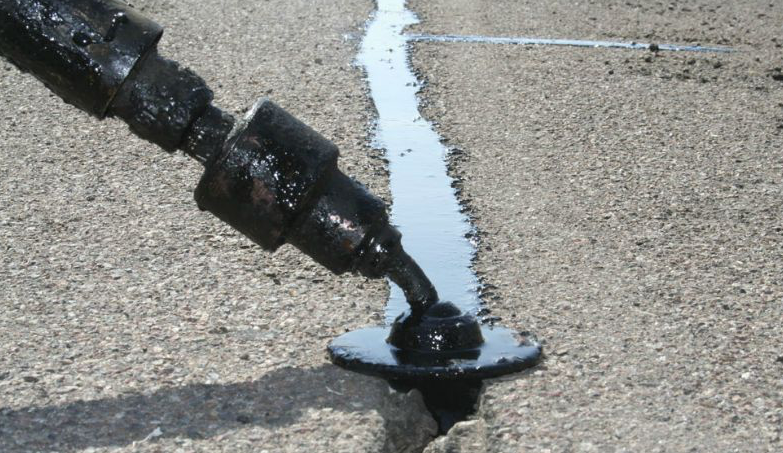Make The Most Of Financial Investment Returns: Angled Car Park Excellence with Asphalt Sealing
Make The Most Of Financial Investment Returns: Angled Car Park Excellence with Asphalt Sealing
Blog Article
Hot Mix Asphalt: A Sustainable Remedy for Pavement
Hot Mix Asphalt (HMA) has become a leading sustainable choice for sidewalk solutions, using a myriad of ingenious technologies and environmental advantages. Its capability to reuse materials and minimize power intake offers a compelling situation for its fostering in roadway construction tasks. The long-lasting performance and sturdiness of HMA make it a preferred option for framework growth. As the demand for environmentally friendly construction methods grows, discovering the nuances of HMA's sustainability can offer valuable insights right into the future of pavement options.
Environmental Benefits of Warm Mix Asphalt

Furthermore, Hot Mix Asphalt assists to mitigate city warm island effects. Its dark color absorbs sunshine, decreasing the quantity of heat mirrored back right into the environment compared to lighter-colored sidewalks. This can decrease ambient temperatures in metropolitan areas, decreasing the demand for a/c and ultimately reducing power intake.
In addition, Warm Mix Asphalt adds to improved stormwater administration. Its permeable nature allows water to reenergize and penetrate the sidewalk groundwater supplies, minimizing drainage and the threat of flooding. These ecological benefits make Hot Mix Asphalt a lasting choice for leading freeways and roadways.
Power Performance in HMA Manufacturing
Is energy performance an essential element in the production of Warm Mix Asphalt (HMA)? Absolutely. Energy plays a substantial duty in the manufacturing of HMA, affecting both expense and environmental sustainability. One vital aspect of energy performance in HMA production is using warm mix asphalt (WMA) innovations (commercial parking lot paving). WMA permits the blending and positioning of asphalt at reduced temperature levels contrasted to traditional hot mix asphalt, resulting in decreased power consumption during production. This procedure not only reduces gas usage however additionally reduces greenhouse gas discharges, making it a more eco-friendly alternative.
Furthermore, developments in plant technologies have caused even more energy-efficient HMA production processes. Modern plants are made with features like recycled asphalt pavement (RAP) processing capacities, reliable burner systems, and boosted insulation, all contributing to energy financial savings. By maximizing power use in HMA production, the sector can lower its carbon impact while maintaining top quality sidewalk materials. Energy effectiveness is, consequently, an important consideration in making you can look here certain the sustainability of Warm Mix Asphalt manufacturing.
Recyclability of Warm Mix Asphalt
The recyclability of Hot Mix Asphalt (HMA) is a critical element of its sustainability and long-lasting ecological impact. HMA is one of the most recycled materials in the United States, with over 100 million loads of reclaimed asphalt sidewalk (RAP) being reused every year in brand-new pavement construction. Recycling HMA uses numerous ecological benefits, such as reducing the requirement for virgin materials, reducing energy consumption during production, and lowering the quantity of waste sent out to garbage dumps.
The process of reusing HMA involves grating the existing sidewalk, squashing it into smaller sized items, and blending it with brand-new aggregate and asphalt binder to create a recycled mix. This recycled mix can usually carry out as well as or perhaps better than conventional HMA, while requiring less resources and generating reduced greenhouse gas discharges. By integrating RAP right into brand-new pavement projects, roadway agencies can save natural deposits, minimize prices, and minimize the ecological impact of roadway building and construction and maintenance tasks. On the whole, the recyclability of HMA plays a substantial function in promoting sustainable practices within the sidewalk industry.

Long-Term Performance of HMA
Asphalt pavements demonstrate resilience and durability over an extended period, mirroring the lasting efficiency of Warm Mix Asphalt (HMA) Additionally, innovations in HMA innovation, such as the use of polymer-modified binders and cozy mix asphalt, have even more boosted the toughness and longevity of HMA pavements. By focusing on high quality building and upkeep practices, HMA continues to show itself as a sustainable and economical service for durable sidewalk infrastructure.

HMA: Durability and Sustainability
Showing both resilience and sustainability, Warm Mix Asphalt (HMA) has ended up being a foundation in the construction of durable sidewalk infrastructures - commercial parking lot paving. HMA's resilience originates from its capacity to withstand heavy loads, harsh climate problems, and high website traffic volumes, making it a reputable choice for highways, highways, and airport runways. The structure of HMA, which normally consists of accumulations, binder, and filler, plays a critical role in boosting its long life and resistance to put on and tear
Additionally, HMA's sustainability hinges on its recyclability and energy-efficient manufacturing procedure. The capacity to reuse recovered asphalt sidewalk (RAP) in brand-new HMA mixtures minimizes the demand for virgin materials and minimizes the ecological effect of sidewalk construction and maintenance. In addition, the power efficiency of producing HMA depends on its reduced blending temperatures contrasted to various other sidewalk products, leading to reduced power intake and greenhouse gas emissions.
Conclusion
In final thought, warm mix asphalt (HMA) provides a lasting solution for pavement with its environmentally friendly qualities. HMA's recyclability, power pop over to this site performance in click for info production, and long-term resilience make it an eco-friendly choice for road building and construction.
HMA is one of the most recycled materials in the United States, with over 100 million loads of recovered asphalt sidewalk (RAP) being reused yearly in brand-new sidewalk construction.The process of reusing HMA includes milling the existing pavement, crushing it into smaller items, and blending it with new aggregate and asphalt binder to create a recycled mix.Asphalt sidewalks show durability and resilience over an extended duration, mirroring the long-lasting efficiency of Warm Mix Asphalt (HMA) Additionally, advancements in HMA innovation, such as the use of polymer-modified binders and warm mix asphalt, have even more improved the toughness and durability of HMA pavements. The capacity to reuse recovered asphalt sidewalk (RAP) in brand-new HMA blends minimizes the need for virgin materials and minimizes the environmental effect of sidewalk building and maintenance.
Report this page